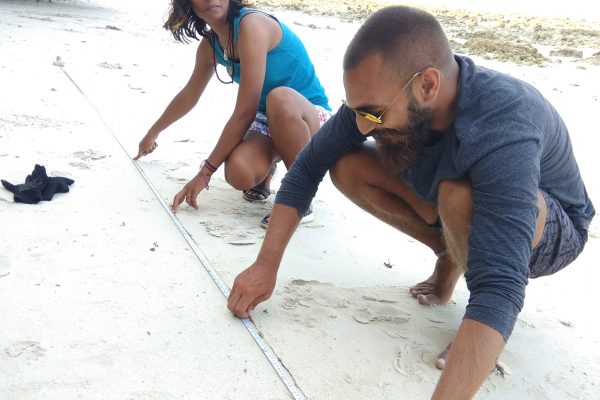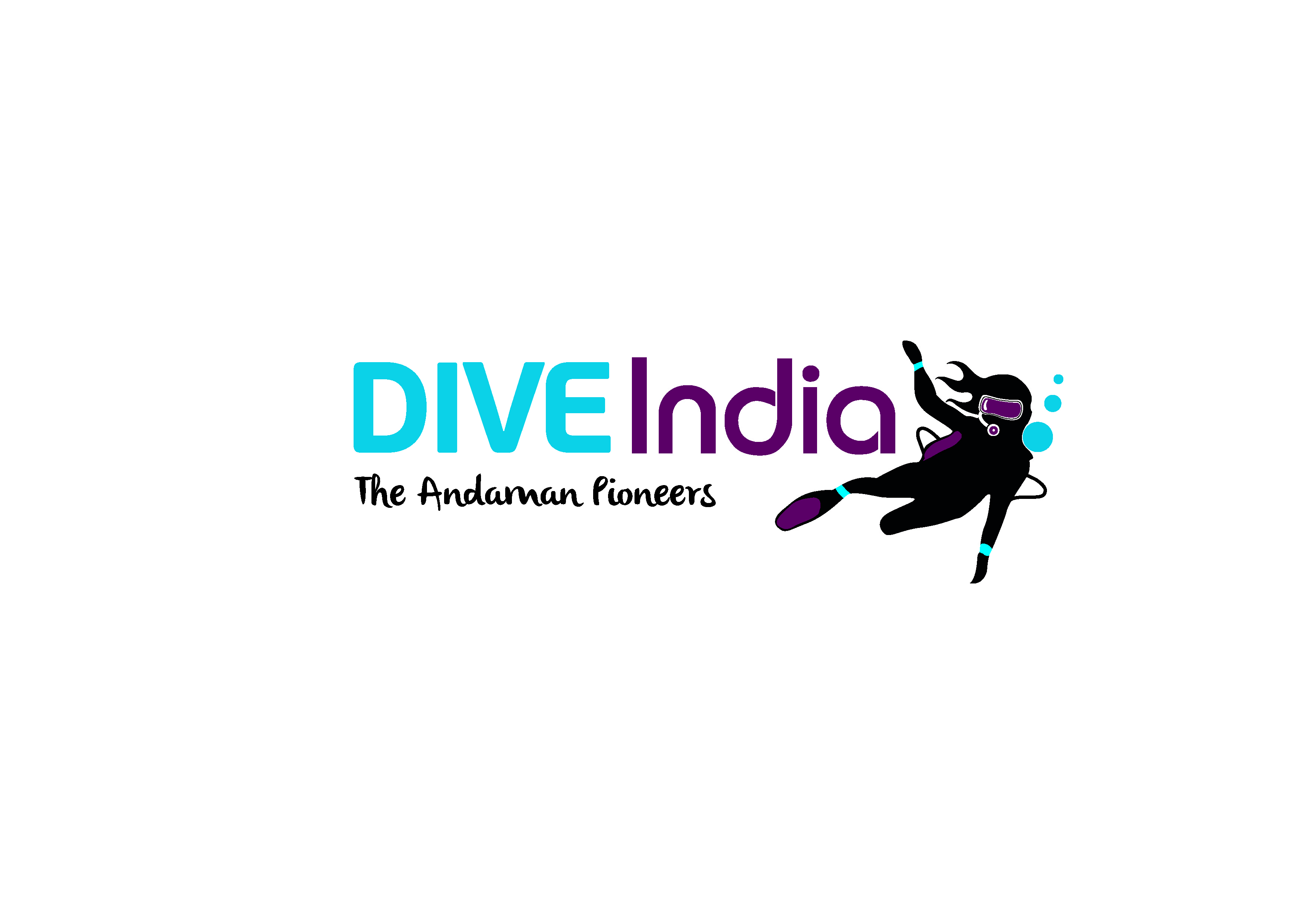DIVEIndia Conservation is an initiative of DIVEIndia focused on ocean awareness, research and conservation. Using our experience and expertise our goal is to build awareness about the ocean through diver education alongside running long term monitoring programs to put the Andamans on the global marine research map. A very important part of our objective is to push for and support actionable conservation on the ground.
The current reality in which we live in is that the oceans ARE in peril. No longer can we pretend that threats to the oceans do not exist and neither can we pretend that we are not part of the problem. On the contrary, not only are we deeply responsible for the deteriorating state of the ocean, we are also a part of the solution for its recovery. As divers, snorkelers, beach goers and ocean lovers, we have the unique ability to experience the ocean in all its splendour but also see the devastating impacts of human action unfold in front of our eyes. How can we leverage our strengths as a community to bring about change?
What We Do
Ours is a small team of dive professionals that come together from various walks of life, united in the goal of ocean conservation. Here is some of the work we do in the Andamans
Research
Education
The Andaman Islands are the perfect place to explore the wilderness above and below the water as well as understand its cultural history. No Andaman experience comes without learning a whole new set of skills along with knowing where and how to apply them in the real world. This makes the Andamans a wonderful place to allow people to experience the beauty, mystery and fragility of the wild while inculcating a sense of stewardship and responsibility towards nature.
Conservation
Ours is a long term research program that we began in 2018 to address the huge gap in our understanding of marine debris in the Andaman Islands. There are several organized efforts across the country including the Andaman Islands towards beach and reef clean ups but as the problem is chronic and not a one-off episode, the efforts have to be sustained. Marine debris accumulation includes everything from plastic, glass, metal to discarded fishing gear and unidentifiable inorganic trash. Like any other threat to the ocean, this must also be studied to inform conservation and policy work.
This program has two components. The first component of the program is underwater and focuses on understanding the nature of debris accumulation in the coral reefs that surround Havelock Island. The second component looks at marine debris accumulation along our coastlines and beaches.
Learning Centre
Read through our curated collection of stories to learn about marine ecosystems, underwater natural history and ocean conservation written by our in-house experts
Get Involved
DIVEIndia Conservation Internship
The DIVEIndia Conservation internship program is a unique opportunity to bring together interested and passionate minds to work towards turning creative and long lasting ideas for ocean conservation into a reality. This is a chance for you to contribute your effort and skill by getting involved in any or all of our existing projects, or by creating one of your own!
Research Projects
Coral reef monitoring program
The Andaman Islands like several coral reef hotspots around the world have been hit by global warming-induced episodic coral bleaching. The bleaching episode of 2010 resulted in large-scale damage to our coral reefs however their recovery has barely been studied. Through this program we will measure and monitor the diversity and abundance of coral reef fish and invertebrates that will allow us to continually track the health and recovery of our coral reefs in light of climate change and coral bleaching.
What you will get to do:
- Conduct observational field surveys to estimate the abundance of reef fish and invertebrates and understand coral reef recovery
- Participate in marine animal behavioural studies to document their ecology and natural history.
- Assist in the processing and analysis of data
- Create and design awareness material based on project outcomes for divers.
Skills required:
Participants will be required to have a minimum SCUBA certification of PADI Advanced Open Water Diver (or equivalent) with a minimum of 75 dives. We also prefer participants with any additional qualifications or certificate courses in marine ecology and marine natural history.
Rocky Shore Biodiversity Program:
The ‘inter-tidal zone’ is that stretch of the ocean that can go from being fully submerged during a high tide, to holding as less as one foot of water at low tides. The Andaman Islands boast of a rich diversity of marine life in these coastal zones- rocky shore, mudflats and mangroves. However, they are highly understudied despite being easily accessible. Monitoring the biodiversity of these areas is critical in documenting the ecological value of rocky shore ecosystems which are exposed to multiple stressors from dredging, coastline development, plastic pollution and fishing.
What you will get to do:
- Get involved in biodiversity monitoring of the rocky intertidal zones
- Assist in processing and analysis of data
- Create awareness material to educate tourists about the ecology of our coastlines
Skills required:
- A keen interest in marine life, especially small invertebrates (crabs, shrimps, worms, slugs..!) Identification and monitoring can be learnt in the field.
Education
People and Our Oceans
Despite our peninsular geography and increase in India’s interest to SCUBA dive and snorkel, our awareness about the ocean is shockingly diminished. An important theme for the storytelling of our oceans for the public has always been the environmentalist perspective covering issues such as global warming, pollution, overfishing and several more. While all of these are true and are devastating the marine environment and us, it does not really address the root cause behind many of the problems we face today- the thinning relationship between people with our oceans.
The Andaman Islands are the perfect place to explore the wilderness above and below the water as well as understand its cultural history. No Andaman experience comes without learning a whole new set of skills along with knowing where and how to apply them in the real world. This makes the Andamans a wonderful place to allow people to experience the beauty, mystery and fragility of the wild while inculcating a sense of stewardship and responsibility towards nature.
What you will get to do:
Help us create, design and facilitate education modules and programs for children and adults from the Andaman Islands and from around the world!
Conservation
Marine debris research and monitoring (MDRM)
Marine debris pollution is one of the most devastating threats to the ocean today. In addition to polluting the water, debris can injure, poison and kill marine life. Ultimately this is a threat to human health.
Ours is a long term research program that we began in 2018 to address the huge gap in our understanding of marine debris in the Andaman Islands. There are several organized efforts across the country including the Andaman Islands towards beach and reef clean ups but as the problem is chronic and not a one-off episode, the efforts have to be sustained. Marine debris accumulation includes everything from plastic, glass, metal to discarded fishing gear and unidentifiable inorganic trash. Like any other threat to the ocean, this must also be studied to inform conservation and policy work.
This program has two components. The first component of the program is underwater and focuses on understanding the nature of debris accumulation in the coral reefs that surround Havelock Island. The second component looks at marine debris accumulation along our coastlines and beaches.
What you will get to do:
- Participate in the ongoing field data collection of marine debris, processing and analysis.
- Work with our team to create awareness material based on project outcomes to engage island stakeholders and increase awareness about problem of marine debris.
Skills required:
- Underwater component of MDRM: Participants will be required to have a minimum SCUBA certification of PADI Advanced Open Water Diver (or equivalent) with a minimum of 50 dives.
*Coastal and beach component of MDRM: The only major requirements for fieldwork in this component of the program are patience and perseverance!
KNOWLEDGE SWAP
The unique nature of this internship program is that in exchange for your time here with us, we will provide one or more SCUBA dive programs or courses depending on the time spent and nature of your contribution towards DIVEIndia Conservation. Candidates can choose any 1 of the following:
*PADI PIC card for charges for certification courses will not be covered by DIVEIndia. This is conducted during the 15 days or at the end depending on the candidate and our availability but should be decided over email.
WHO CAN DO THE INTERNSHIP PROGRAM?
We welcome people who have been keen on learning more about the ocean through hands-on work, students who want to gain field experience, or anyone who wants to contribute in some way towards ocean conservation but hasn’t yet found how! There are not too many specific eligibility criteria but we will be reviewing each application carefully, to see where and how interns and us can mutually benefit and learn from the experience. Here are few requirements:
- Participants need to be 15 years or above. Those below 18 will need to be accompanied by a parent or guardian.
- SCUBA dive certification and dive experience, if the project requires.
- Languages: English and Hindi (the latter is generally useful around the Andamans but also required for projects under Conservation and local Education categories)
- General medical fitness certificate from your physician is required.
HOW IT WORKS
We will accept applications and finalise the terms of the internship program over email. Once in the Andamans, each intern will be assigned to a mentor from the DIVEIndia Conservation team. The first two-three days will be focussed on orientation and training after which we are ready to begin working!
DURATION AND CHARGES
Program fee: INR 15,000 + 18% GST
The internship program duration is 15 days. Anything less doesn’t give you enough time to learn and execute projects. If you would like to work for more than 30 days, this can be discussed based on the projects you choose. We will provide stay in our basic NON/AC ‘Standard Huts’ with a shared bathroom facility and 3 simple meals at DIVEIndia.
Other charges:
Knowledge Swap: Dive programs chosen in the exchange program are on the house. If the program chosen is a PADI certification course, the PIC card charges will apply.
Meet and Greet: INR 4500 +18% – This is a facility we offer to help arrange within Andaman logistics and transfers. It includes airport pickup, ferry tickets to/from Havelock and all land transfers (airport to hotel/jetty, hotel to jetty, etc).
Join Us
COLLABORATE
We believe that creativity and collaboration are key to making conservation efforts effective and long lasting. If you have ideas that you would like to share with us and ways in which we can work together to execute research projects, education programs and conservation solutions, we would be thrilled to hear from you!
Get in touch: chetana@diveindia.com





